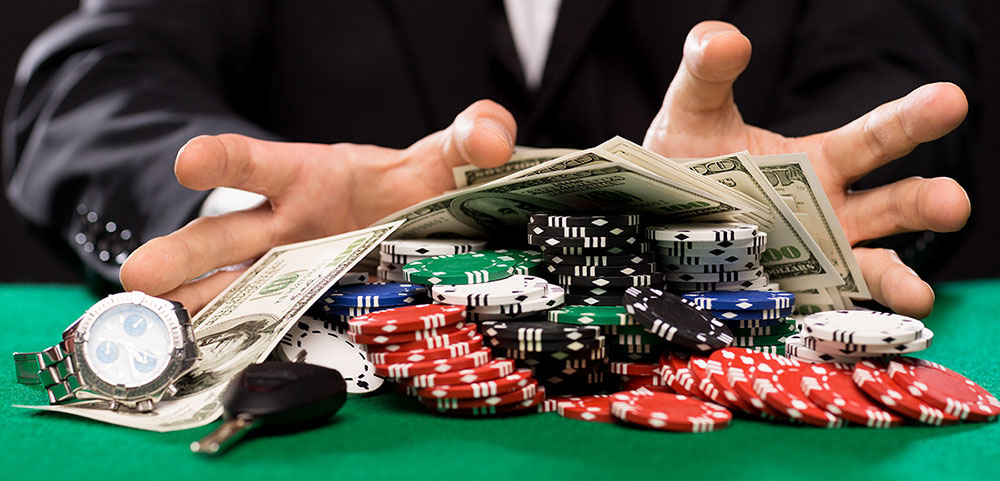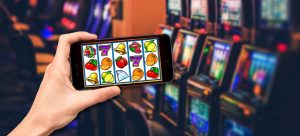If you ask us, far too many casinos both online and in the real world like to pretend that gambling addiction isn’t a thing. Which is pretty easy to understand, given that it isn’t the most uplifting or pleasant subject to talk about. Nevertheless, it’s technically the casinos and the brands behind them that should be talking about gambling addiction openly and honestly – perhaps more prominently than anyone else.
Contrary to popular belief, gambling addiction is actually quite rare. It’s just that a lot of people confuse heavy gambling habits with outright addiction. The difference being that in the case of the latter, those in question have lost control of their actions. You could technically gamble for any number of hours a day and every day of the week, though still be in total control of your habits and your bankroll. But what makes the whole subject even trickier is that drawing the line is something everyone has to do uniquely for themselves.
Detecting a Gambling Problem
While others may chime in and comment on gambling habits that appear to be getting out of control, it’s all irrelevant until the individual in question acknowledges what’s happening. Of course, in many instances outsiders disapprove of the gambling activities of others, simply due to the fact that they share very different opinions. It doesn’t necessarily mean that the party in question does indeed have a gambling problem.
That said, there are certain warning signs and symptoms to be on the lookout for, which could suggest that you yourself are on something of a slippery slope. As always, the key to quickly and successfully combating these kinds of problems lies in identifying them as early as possible.
So even if it’s just to be on the safe side, it’s worth considering the following warning signs and whether it might be high time to take a break from gambling:
1. First of all, consider whether you’ve ever gambled using money that was not your own. Or to put it another way, using any form of debt (credit cards, payday loans etc.) to finance your gambling activities, due to not having any disposable income available at time. As far as most experts are concerned, there is never a justifiable reason for using debt to fund gambling habits. Unless you have the disposable income to pay your way, you shouldn’t be gambling at all. And if you are, you’re treading a dangerous path to say the least.
2. Every now and again, even the most experienced gamblers make at least some kind of mistake with regard to chasing losses. But even when it’s no more than a couple of extra spins to try and win back at least some of what you’ve lost, you’re allowing rationality and common sense to go straight out of the window. Chasing losses is always a bad idea and tends to be a tell-tale sign of gambling addiction. If you have fallen into the habit of chasing losses on a regular basis, it might be time to take a step back and think about your approach to gambling.
4. Ask yourself – what did you do with the money last time you won a healthy prize? Did you put it to one side? Treat it as important cash that could be used for important things? Or did you instinctively blow the lot on gambling without even thinking about it? Maintaining control when it comes to gambling is all about knowing how to both quit while ahead and behind. It’s not uncommon to get caught up in the moment, but to lose sight of common sense on a regular basis is to find yourself in a rather dangerous position.
5. Selling or pawning personal property to fund gambling habits with the intention of purchasing it back further down the line is often a sure-fire sign of addiction. Let’s put it this way – gambling is an activity wherein the odds are always against you. And as such, it is technically more likely that you will not be able to purchase your property back after pawning or selling it. Which means that you are getting rid of things you need or want, simply to throw money away on a whim. Once again, gambling should be about enjoying your disposable income – nothing more.
6. Have you ever found it difficult to make ends meet, having spent more than you intended to on your chosen gambling activities? Things like grocery bills, utilities, rent, mortgage payments and so on – has it ever be necessary to skip or delay these kinds of priorities, in order to fund your gambling? In any instance where priorities have taken a back seat to something you know to be less important, this illustrates that you have lost control. Gambling should never be allowed to take precedence over things in life that really matter.
7. Most gamblers will occasionally find that what was supposed to be an hour of casual play somehow turns into an entire evening of action. And it can be incredibly enjoyable and in no way constitute risky behaviour. That is, unless it is the kind of thing that seems to be happening on a regular basis. If you are fundamentally unable to stick to an intended time frame when it comes to your gambling activities, this immediately suggests that you have lost control. And once again, losing control confirms addictive behaviour.
8. Last but not least, when gambling begins getting in the way of other more important areas of life, chances are you have a problem. It could be your social life, domestic life or anything to do with your professional life – when and where anything begins suffering as a direct result of your gambling activities, questions need to be asked.
The United Kingdom is lucky to have some of the most outstanding resources and support services made freely available to those with concerns regarding gambling problems. So rather than just overlooking or ignoring any signs or symptoms you detect, it’s worth considering them carefully, rather than allowing them to get any worse.
You might also find the following articles interesting:
- 10 Points to Ponder as a Roulette Newbie
- 15 Ultra-Expensive Meals You’ll Probably Never Taste
- 14 Facts to Amaze, Astound and Bore Your Friends to Death With!














